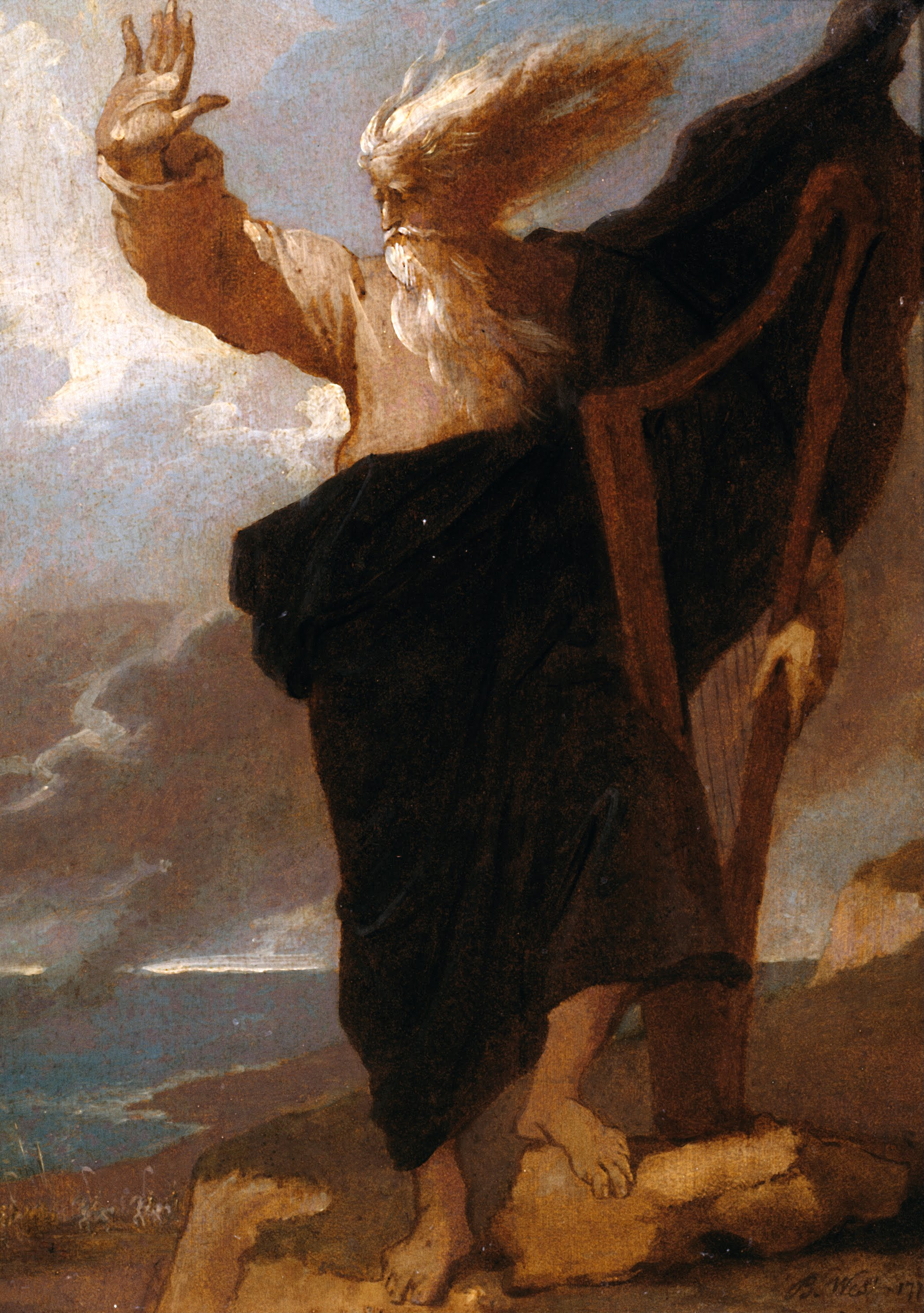
Bard
In Celtic cultures, a bard is a professional story teller, verse-maker, music composer, oral historian and genealogist, employed by a patron (such as a monarch or chieftain) to commemorate one or more of the patron's ancestors and to praise the patron's own activities.
For other uses, see Bard (disambiguation).With the decline of a living bardic tradition in the modern period, the term has loosened to mean a generic minstrel or author (especially a famous one). For example, William Shakespeare and Rabindranath Tagore are respectively known as "the Bard of Avon" (often simply "the Bard") and "the Bard of Bengal".[1][2] In 16th-century Scotland, it turned into a derogatory term for an itinerant musician; nonetheless it was later romanticised by Sir Walter Scott (1771–1832).[1]
Etymology[edit]
The English term bard is a loan word from the Celtic languages: Gaulish: bardo- ('bard, poet'), Middle Irish: bard and Scottish Gaelic: bàrd ('bard, poet'), Middle Welsh: bardd ('singer, poet'), Middle Breton: barz ('minstrel'), Old Cornish: barth ('jester').[3][4] The ancient Gaulish *bardos is attested as bardus (sing.) in Latin and as bárdoi (plur.) in Ancient Greek. It also appears as a stem in bardo-cucullus ('bard's hood'), bardo-magus ('field of the bard'), barditus (a song to fire soldiers), and in bardala ('crested lark', a singing bird).[3]
All of these terms come from the Proto-Celtic noun *bardos ('poet-singer, minstrel'), itself derived, with regular Celtic sound shift *gʷ > *b, from the Proto-Indo-European compound *gʷrH-dʰh₁-o-s, which literally means 'praise-maker'.[3][5][4] It is cognate with Sanskrit: gṛṇā́ti ('calls, praise'), Latin: grātus ('grateful, pleasant, delightful'), Lithuanian: gìrti ('praise'), and Armenian: kardam ('raise voice').[3][4]
History[edit]
In the words of the Oxford English Dictionary, the bards were an "ancient Celtic order of minstrel-poets, whose primary function appears to have been to compose and sing (usually to the harp) verses celebrating the achievements of chiefs and warriors, and who committed to verse historical and traditional facts, religious precepts, laws, genealogies, etc."[1]
In medieval Gaelic and Welsh society, a bard (Scottish and Irish Gaelic) or bardd (Welsh) was a professional poet, employed to compose elegies for his lord. If the employer failed to pay the proper amount, the bard would then compose a satire (c.f. fili, fáith). In other Indo-European societies, the same function was fulfilled by skalds, rhapsodes, minstrels and scops, among others. A hereditary caste of professional poets in Proto-Indo-European society has been reconstructed by comparison of the position of poets in medieval Ireland and in ancient India in particular.[6]
Bards (who are not the same as the Irish filidh or fili) were those who sang the songs recalling the tribal warriors' deeds of bravery as well as the genealogies and family histories of the ruling strata among Celtic societies. The pre-Christian Celtic people recorded no written histories; however, Celtic peoples did maintain an intricate oral history committed to memory and transmitted by bards and filid. Bards facilitated the memorization of such materials by the use of metre, rhyme and other formulaic poetic devices.
From its frequent use in romanticism, 'The Bard' became attached as a title to various poets
Popular culture[edit]
From its Romanticist usage, the notion of the bard as a minstrel with qualities of a priest, magician or seer also entered the fantasy genre in the 1960s to 1980s, for example as the 'Bard' class in Dungeons & Dragons and Pathfinder, Bard by Keith Taylor (1981), Bard: The Odyssey of the Irish by Morgan Llywelyn (1984), in video games in fantasy settings such as The Bard's Tale (1985), and in modern literature and TV like The Witcher books by Andrzej Sapkowski (1986–2013) show by Lauren Schmidt Hissrich (2019).
As of 2020, an online trend to cover modern songs using medieval style musical instruments and composition, including rewriting the lyrics in a medieval style, is known as bardcore.
In 2023 Google released its AI chatbot Bard.[21]